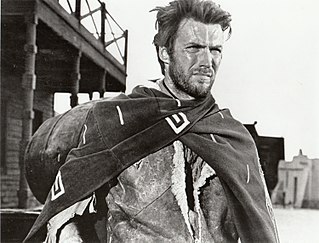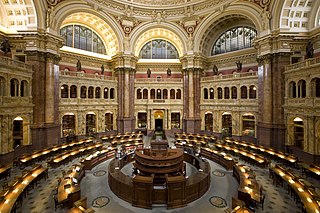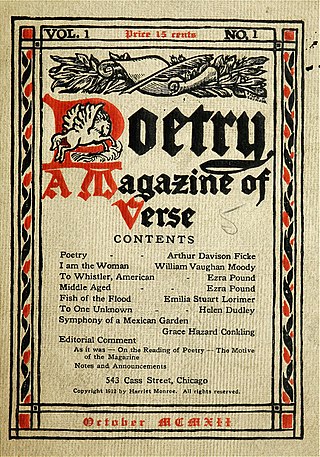
The following outline is provided as an overview of and topical guide to literature. See also the Outline of poetry.

Malayalam is a Dravidian language spoken in the Indian state of Kerala and the union territories of Lakshadweep and Puducherry by the Malayali people. It is one of 22 scheduled languages of India. Malayalam was designated a "Classical Language of India" in 2013. Malayalam has official language status in Kerala and Puducherry (Mahé), and Lakshadweep and is spoken by 34 million people in India. Malayalam is also spoken by linguistic minorities in the neighbouring states; with a significant number of speakers in the Kodagu and Dakshina Kannada districts of Karnataka, and Kanyakumari, district of Tamil Nadu. It is also spoken by the Malayali Diaspora worldwide, especially in the Persian Gulf countries, due to the large populations of Malayali expatriates there. They are a significant population in each city in India including Mumbai, Bengaluru, Delhi, Kolkata, Pune etc.

Literary theory is the systematic study of the nature of literature and of the methods for literary analysis. Since the 19th century, literary scholarship includes literary theory and considerations of intellectual history, moral philosophy, social philosophy, and interdisciplinary themes relevant to how people interpret meaning. In the humanities in modern academia, the latter style of literary scholarship is an offshoot of post-structuralism. Consequently, the word theory became an umbrella term for scholarly approaches to reading texts, some of which are informed by strands of semiotics, cultural studies, philosophy of language, and continental philosophy.

Literary criticism is the study, evaluation, and interpretation of literature. Modern literary criticism is often influenced by literary theory, which is the philosophical discussion of literature's goals and methods. Though the two activities are closely related, literary critics are not always, and have not always been, theorists.
The history of literature is the historical development of writings in prose or poetry that attempt to provide entertainment, enlightenment, or instruction to the reader/listener/observer, as well as the development of the literary techniques used in the communication of these pieces. Not all writings constitute literature. Some recorded materials, such as compilations of data are not considered literature, and this article relates only to the evolution of the works defined above.

An antihero or antiheroine is a main character in a story who may lack conventional heroic qualities and attributes, such as idealism, courage, and morality. Although antiheroes may sometimes perform actions that most of the audience considers morally correct, their reasons for doing so may not align with the audience's morality. An antihero typically exhibits one of the "Dark Triad" personality traits, which include narcissism, psychopathy, and Machiavellianism.

American literature is literature written or produced in the United States of America and in the colonies that preceded it. The American literary tradition thus is part of the broader tradition of English-language literature, but also includes literature of other traditions produced in the United States and in other immigrant languages. Furthermore, a rich tradition of oral storytelling exists amongst Native Americans.

Comparative literature is an academic field dealing with the study of literature and cultural expression across linguistic, national, geographic, and disciplinary boundaries. Comparative literature "performs a role similar to that of the study of international relations but works with languages and artistic traditions, so as to understand cultures 'from the inside'". While most frequently practised with works of different languages, comparative literature may also be performed on works of the same language if the works originate from different nations or cultures in which that language is spoken.
New Criticism was a formalist movement in literary theory that dominated American literary criticism in the middle decades of the 20th century. It emphasized close reading, particularly of poetry, to discover how a work of literature functioned as a self-contained, self-referential aesthetic object. The movement derived its name from John Crowe Ransom's 1941 book The New Criticism.
The Fugitives also known as The Fugitive Poets, is the name given to a group of poets and literary scholars at Vanderbilt University in Nashville, Tennessee, who published a literary magazine from 1922 to 1925 called The Fugitive. The group, primarily driven by Robert Penn Warren, John Crowe Ransom, Donald Davidson, and Allen Tate, formed a major school of twentieth century poetry in the United States. With it, a major period of modern Southern literature began. Their poetry was formal and featured traditional prosody and concrete imagery often from experiences of the rural south. The group has some overlap with two later groups Southern Agrarians and New Criticism.

A literary magazine is a periodical devoted to literature in a broad sense. Literary magazines usually publish short stories, poetry, and essays, along with literary criticism, book reviews, biographical profiles of authors, interviews and letters. Literary magazines are often called literary journals, or little magazines, terms intended to contrast them with larger, commercial magazines.
African American literature is the body of literature produced in the United States by writers of African descent. It begins with the works of such late 18th-century writers as Phillis Wheatley. Before the high point of enslaved people narratives, African-American literature was dominated by autobiographical spiritual narratives. The genre known as slave narratives in the 19th century were accounts by people who had generally escaped from slavery, about their journeys to freedom and ways they claimed their lives. The Harlem Renaissance of the 1920s was a great period of flowering in literature and the arts, influenced both by writers who came North in the Great Migration and those who were immigrants from Jamaica and other Caribbean islands. African American writers have been recognized by the highest awards, including the Nobel Prize given to Toni Morrison in 1993. Among the themes and issues explored in this literature are the role of African Americans within the larger American society, African-American culture, racism, slavery, and social equality. African-American writing has tended to incorporate oral forms, such as spirituals, sermons, gospel music, blues, or rap.

The Lambda Literary Foundation is an American LGBTQ literary organization whose mission is to nurture and advocate for LGBTQ writers, elevating the impact of their words to create community, preserve their legacies, and affirm the value of LGBTQ stories and lives.
The Yale Review is the oldest literary journal in the United States. It is published by Johns Hopkins University Press.

Literature is any collection of written work, but it is also used more narrowly for writings specifically considered to be an art form, especially prose fiction, drama, and poetry. In recent centuries, the definition has expanded to include oral literature, much of which has been transcribed. Literature is a method of recording, preserving, and transmitting knowledge and entertainment, and can also have a social, psychological, spiritual, or political role.
English literature is literature written in the English language from the United Kingdom, its Crown Dependencies and Overseas Territories, the Republic of Ireland, the United States, and the countries of the former British Empire. The English language has developed over the course of more than 1,400 years. The earliest forms of English, a set of Anglo-Frisian dialects brought to Great Britain by Anglo-Saxon invaders in the fifth century, are called Old English. Beowulf is the most famous work in Old English, and has achieved national epic status in England, despite being set in Scandinavia. However, following the Norman conquest of England in 1066, the written form of the Anglo-Saxon language became less common. Under the influence of the new aristocracy, French became the standard language of courts, parliament, and polite society. The English spoken after the Normans came is known as Middle English. This form of English lasted until the 1470s, when the Chancery Standard, a London-based form of English, became widespread. Geoffrey Chaucer, author of The Canterbury Tales, was a significant figure in the development of the legitimacy of vernacular Middle English at a time when the dominant literary languages in England were still French and Latin. The invention of the printing press by Johannes Gutenberg in 1439 also helped to standardise the language, as did the King James Bible (1611), and the Great Vowel Shift.
English studies is an academic discipline taught in primary, secondary, and post-secondary education in English-speaking countries; it is not to be confused with English taught as a foreign language, which is a distinct discipline. An expert on English studies can be called an Anglicist. The discipline involves the study and exploration of texts created in English literature. English studies include: the study of literature, the majority of which comes from Britain, the United States, and Ireland ; English composition, including writing essays, short stories, and poetry; English language arts, including the study of grammar, usage, and style; and English sociolinguistics, including discourse analysis of written and spoken texts in the English language, the history of the English language, English language learning and teaching, and the study of World of English. English linguistics is usually treated as a distinct discipline, taught in a department of linguistics.

The Nobel Prize in Literature is a Swedish literature prize that is awarded annually, since 1901, to an author from any country who has, in the words of the will of Swedish industrialist Alfred Nobel, "in the field of literature, produced the most outstanding work in an idealistic direction". Though individual works are sometimes cited as being particularly noteworthy, the award is based on an author's body of work as a whole. The Swedish Academy decides who, if anyone, will receive the prize. The academy announces the name of the laureate in early October. It is one of the five Nobel Prizes established by the will of Alfred Nobel in 1895. Literature is traditionally the final award presented at the Nobel Prize ceremony. On some occasions the award has been postponed to the following year, most recently in 2018 as of May 2022.
The literature of South Carolina, United States, includes fiction, poetry, and nonfiction. Representative authors include Dorothy Allison, Daniel Payne and William Gilmore Simms.







